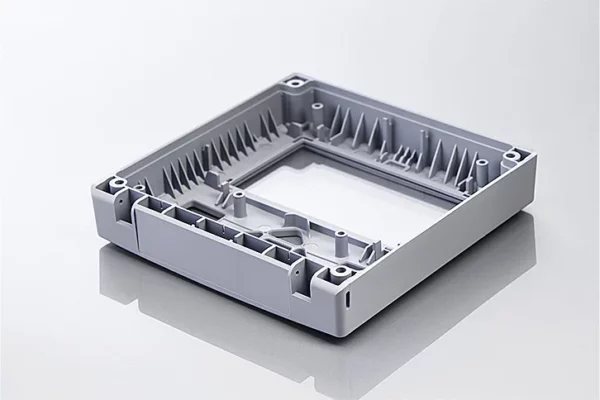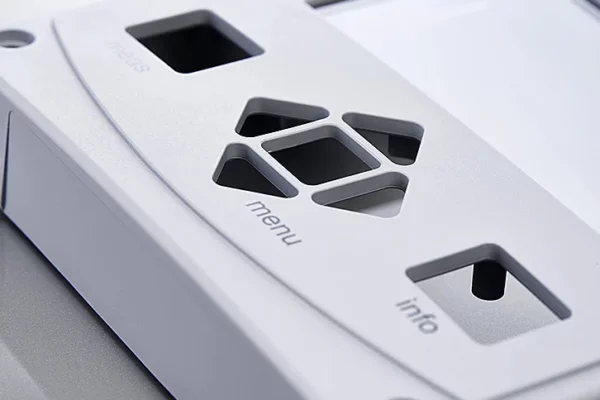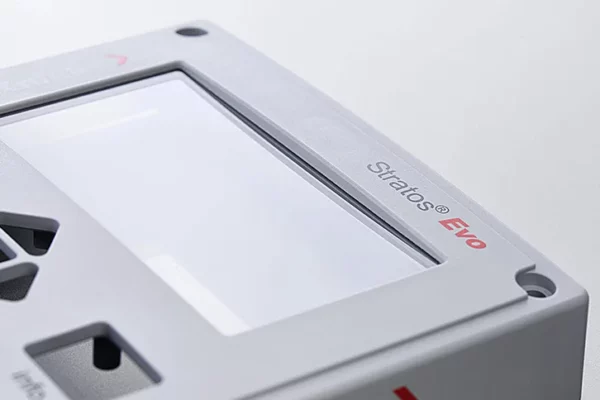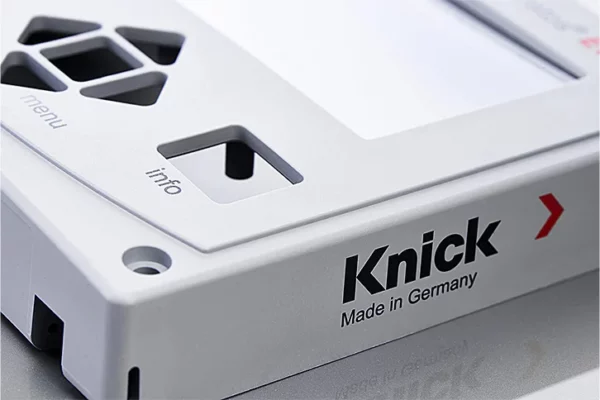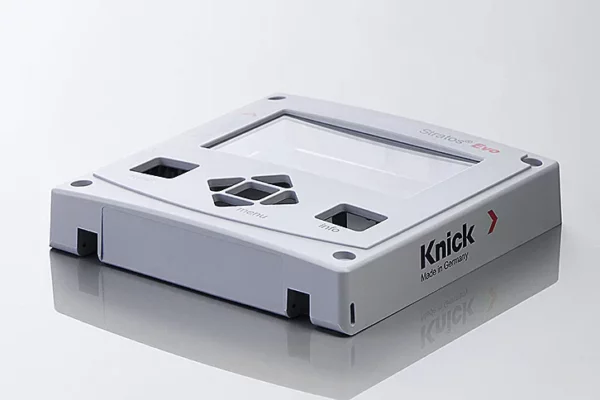Requirements
The Stratos Evo is an established measuring instrument in process analytics, used today in numerous applications in the chemical industry for pH, redox, conductivity and oxygen measurement. We were commissioned by the Knick company from Berlin, a renowned German manufacturer of electronic measuring instruments, to manufacture different variants of the Stratos product housing. In addition to application in areas subject to potential explosions, the fronts also had to be designed to be robust and UV-protected, with all the requirements for tightness (IP66 and IP67), chemical resistance and fire protection (UL 94 V-0).
The special challenge in the product and process design was, on the one hand, the low-stress encapsulation of the impact-resistant real glass pane while maintaining the required tightness class. On the other hand, numerous print and housing variants had to be realized efficiently and stably in small quantities in series production.
Process
In an integrated development and manufacturing process, all the added value was created at our Helmbrechts site – from process development, suitable part geometry design for production, and toolmaking, to technical injection molding with real glass inserts and joined two-color printing. Only the real glass pane is purchased externally.
Using the example of the encapsulated glass pane, we were able to show how important it is to incorporate findings from experimental projects into practical applications. Since the installation of the glass pane was extremely cost-intensive due to the high tightness requirements, we were able to develop invaluable solutions for the front from our successful trials with real glass encapsulations. We therefore succeeded in designing the insertion area in the tool for the glass pane in such a way that the glass pane’s high tolerances are perfectly compensated. For the sake of the required impact strength, additional stiffening ribs were subsequently inserted to compensate for forces, which were not allowed to be visible on the surface.
Each process step is permanently monitored using measuring machines, gages, dial gages and calipers, and documented in the CAQ system. This enabled us to guarantee reproducibility in all variants.
Result
Since every process represents a potential source of error, we deliberately decided to manufacture in a single-stage process. This meant that we could dispense with the downstream and cost-intensive installation of the real glass pane. All process steps are carried out in-house, which in turn reduces production time and increases process efficiency. And this despite a comparatively small total run of a maximum of 10,000 units per year across all variants.
Convinced?
Start project now
Call us or write to us. Let’s get your idea into series production together.

